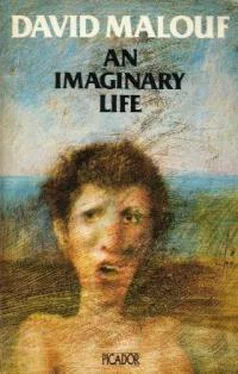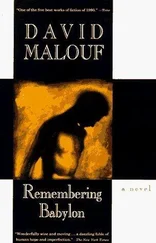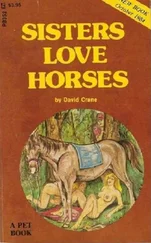David Malouf - An Imaginary Life
Здесь есть возможность читать онлайн «David Malouf - An Imaginary Life» весь текст электронной книги совершенно бесплатно (целиком полную версию без сокращений). В некоторых случаях можно слушать аудио, скачать через торрент в формате fb2 и присутствует краткое содержание. Жанр: Проза, на английском языке. Описание произведения, (предисловие) а так же отзывы посетителей доступны на портале библиотеки ЛибКат.
- Название:An Imaginary Life
- Автор:
- Жанр:
- Год:неизвестен
- ISBN:нет данных
- Рейтинг книги:5 / 5. Голосов: 1
-
Избранное:Добавить в избранное
- Отзывы:
-
Ваша оценка:
- 100
- 1
- 2
- 3
- 4
- 5
An Imaginary Life: краткое содержание, описание и аннотация
Предлагаем к чтению аннотацию, описание, краткое содержание или предисловие (зависит от того, что написал сам автор книги «An Imaginary Life»). Если вы не нашли необходимую информацию о книге — напишите в комментариях, мы постараемся отыскать её.
An Imaginary Life — читать онлайн бесплатно полную книгу (весь текст) целиком
Ниже представлен текст книги, разбитый по страницам. Система сохранения места последней прочитанной страницы, позволяет с удобством читать онлайн бесплатно книгу «An Imaginary Life», без необходимости каждый раз заново искать на чём Вы остановились. Поставьте закладку, и сможете в любой момент перейти на страницу, на которой закончили чтение.
Интервал:
Закладка:
And all winter I drilled with my company of guards and have discovered in myself what my father must always have known was there, however much I denied it, the lineaments of a soldier. How I have changed! What a very different self has begun to emerge in me!
I now understand these people’s speech almost as well as my own, and find it oddly moving. It isn’t at all like our Roman tongue, whose endings are designed to express difference, the smallest nuances of thought and feeling. This language is equally expressive, but what it presents is the raw life and unity of things. I believe I could make poems in it. Seeing the world through this other tongue I see it differently. It is a different world. Somehow it seems closer to the first principle of creation, closer to whatever force it is that makes things what they are and changes them into what they would be. I have even begun to find my eye delighted by the simple forms of this place, the narrower range of colors, the harsh lines of cliff and shrub, the clear, watery light. Now that spring is no longer to be recognized in blossoms or in new leaves on the trees, I must look for it in myself. I feel the ice of myself cracking. I feel myself loosen and flow again, reflecting the world. That is what spring means. I have also, in a winter of long evening arguments, won my battle with Ryzak. In the autumn, when the birches are bare, we will go out and find the boy, and this time, if it can be managed without harm, we will bring him back. Ryzak has only one doubt. He must first get the assurance of the shaman that they can bring the boy into the village without antagonizing some spirit of the woods.
What they are afraid of, I think, is that by allowing the Child into the village, they may make themselves vulnerable to whatever being it is that has raised and protected him. It may be the wolves that prowl round the stockade in winter, howling above the wind, gray packs that are themselves like spirits of the winter plains, shaggy, iron-fanged, famished with cold. Might the boy, Ryzak wonders, have the power to turn himself into a wolf in the winter months? Is that how he survives? And where would we be then? Might he be able to creep out at night and open the gates to his brothers? Or is it some spirit even more savage and terrible than wolves that has nursed him? Some animal presence we do not know and have never seen. What if he were in communion with that, or had the power of assuming the form of a creature whose shape, whose horror, we can only imagine, and have no magic to placate? I argue that he is just a boy, a male child as human as ourselves, and Ryzak believes me, or pretends to because he has a great desire, in my presence, to appear superior to his superstitious people and as reasonable as he thinks I am. But in fact I am deceiving him. I know it is not an ordinary boy. It is the Child.
The summer comes, and my garden flourishes. Wild flowers mostly that I have found in the marshes or between the stalks of oats in our narrow ploughed land. Who knows where the seeds blow in from? Careful tending has made them strong, and regular feeding with leaf mold and manure brings out their color, blue, red, and yellow. The women of the house find so much effort spent on something that we cannot eat foolish beyond belief; but they like the colors and are happy enough to provide me each day with a little water from our meager store. Mostly, I think, they humor me as they would a child. Everything else about us exists purely for use. The women wear no ornaments. What they sew has good strong seams but not a stitch that is fanciful. Only my flowers are frivolous, part of the old life I have not quite abandoned. Only the time I spend upon them is play.
For these people it is a new concept, play. How can I make them understand that till I came here it was the only thing I knew? Everything I ever valued before this was valuable only because it was useless, because time spent upon it was not demanded but freely given, because to play is to be free. Free is not a word that exists, I think, in their language. Nothing here is free of its own nature, its own law.
But we are free after all. We are bound not by the laws of our nature but by the ways we can imagine ourselves breaking out of those laws without doing violence to our essential being.
We are free to transcend ourselves. If we have the imagination for it.
My little flowerpots are as subversive here as my poems were in Rome. They are the beginning, the first of the changes. Some day, I know, I shall find one of our women stopping by as she crosses the yard with a bag of seed to smell one of my gaudy little blooms. She will, without knowing it, be taking the first step into a new world.
Meanwhile I think only of the Child. The rest is mere filling of empty time. The summer passes with flowers. The grain is brought in, threshed, stored. It is autumn again. We go out to take him.
I have no wish to tell how it came about. Coward that I am, I did not take part in the chase and would have preferred not to witness it. Crouched against one of the birches with my hands over my ears, I let the others do it for me, the big horses surging about the wood, chopping at the leaf mold with their iron hooves, the men whooping and yelling, weaving in circles, so that the Child, driven this way and that in the thick undergrowth, must have been confounded utterly by strange cries coming at him from all directions, shadowy figures darting out from all parts of the sky. When he suddenly stumbled into the clearing and stopped before me, he was in a state of utter panic, exhausted, half-crazed, his shoulders torn and bleeding where twigs had caught them, his body filthy with mud. His mouth, as he stood there surrounded at last, poured out a terrible howling that was like nothing I have ever heard from a human throat. But as the first of the young men swung down behind him, he suddenly discovered a new force of energy, lashing out with his fists, heels, teeth, till the young man covered his mouth and nostrils with a fierce hand, squeezing the breath out of him, and the others were able to hold and then tie him with thongs. Only the eyes continued to move wildly, and I thought from the spasms that shook his body that he might be in a fit. I put my hand on him, and a savage hissing came from the nostrils, the spasms increased. At last we left him to himself, trussed like a pig, under an oak tree, while the shaman began his ritual. The high singing of the shamanґs other, polar, voice seemed to quiet him. It was as if the shaman were singing the wildness form him, leading it north in his trances towards the polar circle of eternal whiteness, taking it down through a hole made with a fish bone, under the ice. When the shaman woke and came out of his circle the Child was asleep, and he slept like that all through the journey back, slung forward over the headmanґs saddle, and for another whole day after we had returned. What a strange procession we must have made, coming up the long slope from the marshes in the late afternoon, with the autumn light over the river flats and the long black line of the cliffs, beyond which, shining flat and gray, lay the sea. Children left off splashing about in the pools and ran shouting behind us, wide-eyed, staring. Women gathering their clothes off thorn bushes came and stood with their arms full of washing to watch us, only their eyes visible under the black shawls. Rumor of the boyґs capture had preceded us. The lean body, about the size of a deer, slung across the headmanґs horse, might have been lifeless, drained of blood and spirit like the joints we were bringing home on the other horses.
But the news is already abroad that the creature, whatever he is - wolf boy, godling, satyr - is alive. The village has accepted him within its walls. It is all to begin.
What have I done?
The Child is lying, still trussed, in a corner of the room opposite me. Since the first occasion the women have refused to touch him. When he fouls himself I must wash him down. They prepare his food, a gruel made of meal and sweetened with honey, but will not cross the threshold of the room. I untie his hands and leave the bowl, listening at the door for him to drag himself over the rushes and sup it up, snuffling like an animal in his hunger. He whimpers but does not cry. His eyes remain dry and nothing like a human sobbing ever comes from him, none of that giving of oneself over to tears that might release the child in him. The whimpering comes from somewhere high in his head and has been learned from one of the animals. He keeps it up for hours on end. To comfort himself, quite shamelessly, as some children suck their thumb, he excites himself with his hand to a series of little shudders, as I have seen monkeys do, then again, and again, till the spasms have exhausted him and he is quiet, squatting in the corner with his knees drawn up sharp and his mouth clenched; or curled up in a ball in the rushes, his knees under his chin, his elbows tight between them. We spend hours simply staring at one another. And I have no idea what feelings might be at work in him. He shows no sign of interest in anything I do. I write a little. I eat. I mend a tear in my cloak. He stares but does not see. At first when I touched him in the cleaning he tried to bite me with his sharp incisors. Now he accepts all that I do with a passivity that has begun to disturb me. I am afraid we may already have killed something in him. I have a terrible fear that he may die - that what we have brought back here is some animal part of him that can be housed and fed for a while, and kept with us by force, but only till it realizes that the spirit is already gone, having slipped away out of the arms of the first young man who caught and held him, or worse still, having been dreamed out of his body in that first protracted sleep.
Читать дальшеИнтервал:
Закладка:
Похожие книги на «An Imaginary Life»
Представляем Вашему вниманию похожие книги на «An Imaginary Life» списком для выбора. Мы отобрали схожую по названию и смыслу литературу в надежде предоставить читателям больше вариантов отыскать новые, интересные, ещё непрочитанные произведения.
Обсуждение, отзывы о книге «An Imaginary Life» и просто собственные мнения читателей. Оставьте ваши комментарии, напишите, что Вы думаете о произведении, его смысле или главных героях. Укажите что конкретно понравилось, а что нет, и почему Вы так считаете.












